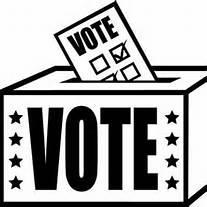When might we get to vote for our municipal representatives again?
That is a question that awaits an answer. The Sask. Party government has been floating a proposal which would see the municipal elections set for late October 2020 move to October of 2021 to avoid overlap with the early November provincial election in 2020.
While an overlapping campaign might not be the best scenario, the situation the Sask Party is trying to fix by extending the municipal term another year is largely one of their own making.
The Sask Party introduced the legislation setting a fixed date for provincial elections. Brad Wall before even being sworn in as Premier announced Nov. 7, 2011, as the next election date within hours of the party’s first election win on Nov. 7, 2007.
But the eventual legislation did offer an option should the date conflict with a federal vote. The clause was used in November 2015 pushing the provincial election to April of 2016 to avoid conflict with the October 2015 federal vote.
But moves tend to have ripple effects, and that move essentially set up the impending conflict in 2020.
The question ultimately is, if you are dedicated to pre-set election dates as a way to make the call for a vote a political chip, then is bumping dates accomplishing that goal?
There will be those who suggest elections running close to each other muddy the water, although that might be construed as underestimating the savvy of voters to know what is transpiring.
As it stands there will be a United States presidential election set for Nov. 3, 2020, and with Donald Trump involved media will be following that circus in a major way, which there is little the province can do to avoid.
In the case of the municipal conflict it is rather obvious the Sask Party would like to avoid municipal candidates pointing out the loss of provincial dollars has led to municipal tax increases, which, from a government perspective, would indeed muddy the water in terms of re-election hopes.
Neither the Saskatchewan Urban Municipalities Association, nor the Saskatchewan Association of Rural Municipalities are particularly interested in moving their dates, which suggests a forced move by the province will only strain relations farther, considering the impact of dollar reductions are still being felt at the municipal level.
It seems moving forward either the province or municipalities should move to a spring election date, leaving the other to fall.
In fact, we have a Premier in Scott Moe, who Saskatchewan voters have not stamped with approval in terms of an election with him as leader, so an early 2020 date would allow the voters to have a say on his leadership and avoid the conflict with municipal elections in the fall.



